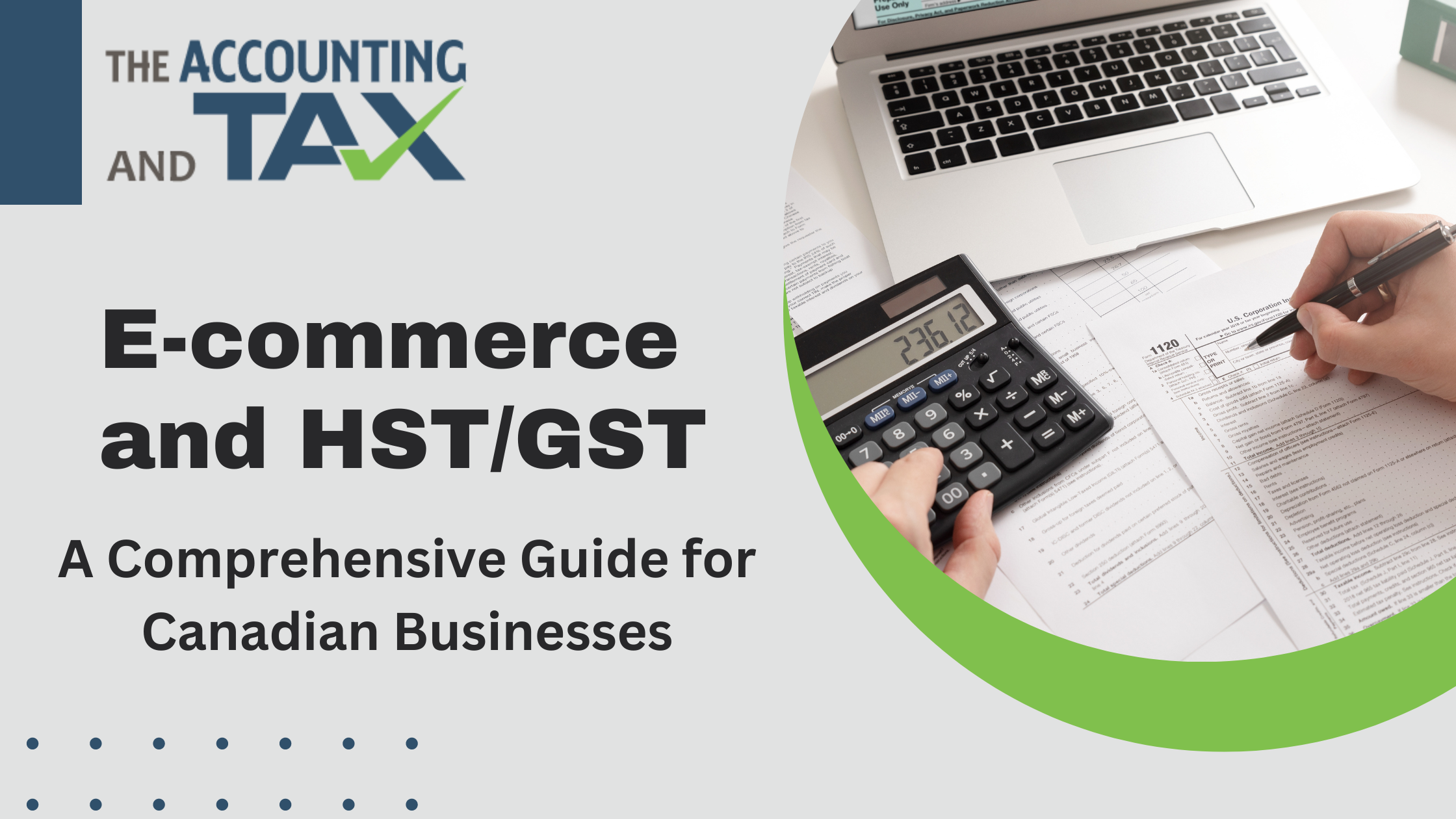
E-commerce and HST/GST: A Comprehensive Guide for Canadian Businesses
In the fast-evolving landscape of E-commerce, understanding the intricate interplay of taxes is crucial to flourishing as a business entity. In Canada, the Harmonized Sales Tax (HST) and Goods and Services Tax (GST) are pivotal factors shaping the E-commerce environment. At our digital doorstep, we present a comprehensive guide to E-commerce and HST/GST, designed to equip you with the knowledge needed to steer through these complex waters and gain a competitive edge.
Managing Taxation in E-commerce
When embarking on your E-commerce journey in Canada, you’ll quickly find that HST and GST are integral elements of the equation. This isn’t just about compliance; it’s about understanding how these taxes influence the realm of online retail.
The Role of HST and GST
HST and GST are levied on most goods and services across the nation. This extensive reach of taxation impacts both businesses and consumers alike. By grasping the nuances of these taxes, you can make informed decisions that streamline your operations.
The Challenges of E-commerce Taxation
The digital sphere transcends geographical borders, presenting challenges unique to E-commerce. The intricacies of cross-border transactions can be daunting, with international tax regulations and customs duties demanding meticulous attention.
Discover how technology is reshaping cross-border tax landscapes by exploring the insights shared in this blog.
Deciphering Tax Compliance
To succeed in E-commerce, you need more than just an understanding of your products and customers. The tax compliance landscape demands your attention, ensuring you remain on the right side of the law.
Registering for GST/HST
At the heart of E-commerce taxation lies the need to register for a GST/HST account. This crucial step involves obtaining a Business Number and selecting the appropriate GST/HST accounts based on your business’s location and sales volume.
Grasping Tax Rates
Determining the correct tax rate is a puzzle businesses often need to solve. The tax rate varies by province and territory, necessitating a comprehensive grasp of these nuances to ensure accurate calculations.
E-commerce Platforms: A Partner in Taxation
The digital age brings with it a plethora of tools to aid your E-commerce journey, and taxation is no exception. E-commerce platforms play a pivotal role in tax collection. Many platforms offer automated tax calculation tools, minimising the potential for errors and ensuring you apply the right tax rates to each transaction seamlessly.
The Path Forward: Expert Insights
We sought advice from industry experts to demystify the complexities of E-commerce and HST/GST taxation. Their collective wisdom illuminates a clearer path for businesses navigating these waters.
Acceptance of Technological Solutions
Experts advise staying informed about tax regulation changes and leveraging technology for precise tax calculations. In the world of E-commerce and HST/GST, staying ahead means staying informed.
Improving Your Online Shopping Experience
E-commerce integration with HST and GST in Canada is not just a requirement; it’s an opportunity to optimise your business’s operations.
As you delve into the realm of E-commerce and HST/GST, remember that knowledge is power. By understanding tax regulations, leveraging technology, and maintaining vigilance over changes, your E-commerce venture can thrive in this dynamic landscape.
FAQs
How does the Place of Supply rule affect E-commerce taxation?
Ans: The province whose tax rate is applicable to a transaction is determined by the Place of Supply rule. This regulation is crucial for e-commerce companies who operate in multiple provinces.
Do I need to charge taxes on digital products and services?
Ans: Yes, digital products and services are subject to GST/HST in Canada. Everything from e-books to software downloads fall under this category.
Are there any tax exemptions for small E-commerce businesses?
Ans: Small businesses with annual revenues below a certain threshold may be eligible for the Small Supplier Exemption, which allows them to be exempt from registering & charging GST/HST.
What is the Voluntary Disclosure Program?
Ans: Businesses have the opportunity to address prior tax errors through the voluntary disclosure program without being penalized or prosecuted.
Can I claim input tax credits (ITCs) for my business expenses?
Ans: Yes, businesses can claim ITCs for GST/HST paid on business expenses. This helps in reducing the amount of tax that must be paid to the government.
How can I handle returns and refunds while managing taxes?
Ans: Returns & refunds can impact your tax calculations. It’s important to keep accurate records and make the necessary adjustments to your tax filings.
Conclusion
E-commerce and HST/GST integration in Canada is a challenging but essential part of running an online business. Owners of e-commerce businesses can successfully navigate this complex environment by being aware of regulatory changes, using technical resources, and knowing tax rules.
It’s critical to understand that information is the most precious asset in the world of online retail. It helps businesses to not only comply with tax rules but also prosper in the fast-paced world of E-commerce and HST/GST.
